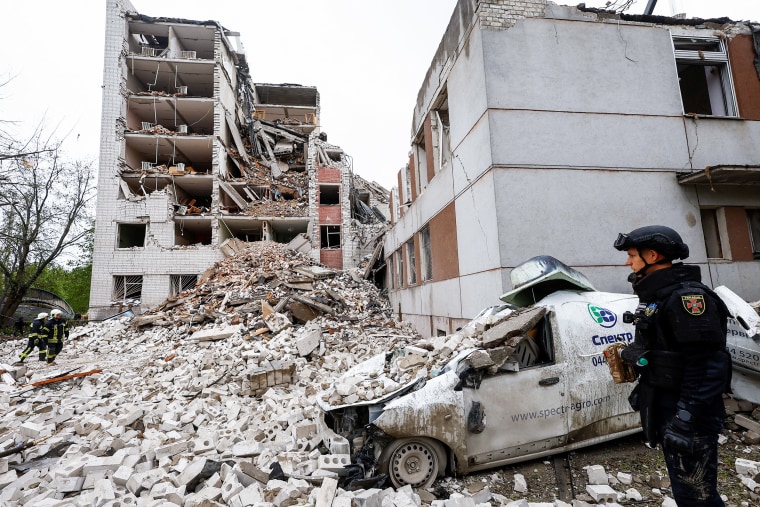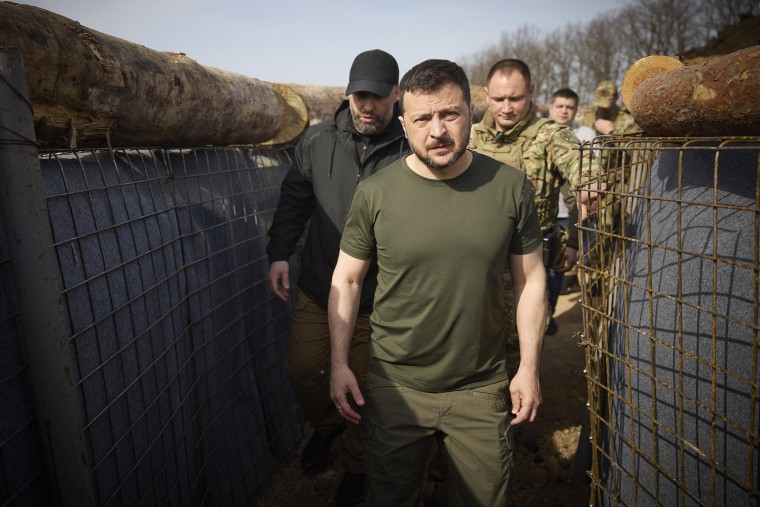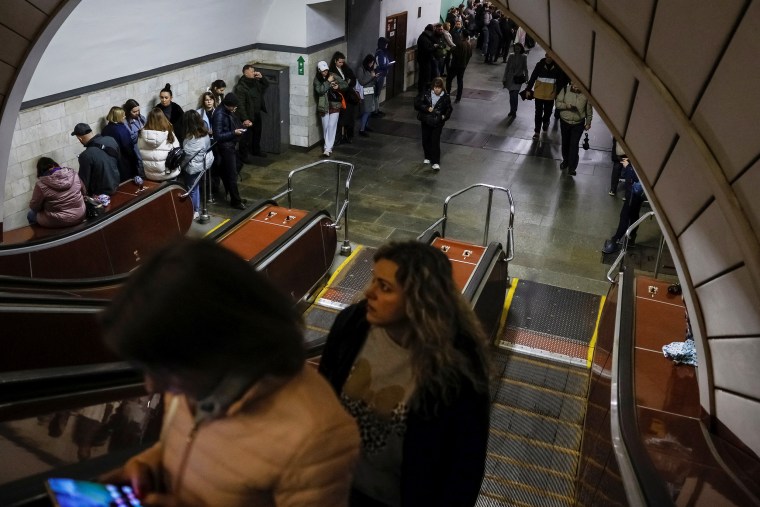KYIV, Ukraine — In the wave of Iranian drones and missiles that were shot down before they reached their targets over the weekend, another ally sees the possibilities, and limits, of Western support.
The U.S. and its partners helped Israel, so why, Ukraine is asking, won’t they help protect us from Russian attacks?
It "looks extremely strange," Ukrainian presidential adviser Mykhailo Podolyak said in an interview Tuesday.
"How does the civilian population of Ukraine or the civilian infrastructure of Ukraine differ from the civilian population of Israel from a humanistic point of view?" he asked bluntly.
Most galling, perhaps, is that the Kremlin has been deploying the same drones as Tehran in its assault on Ukrainian cities.
"Russia and Iran use the same attack strategy and the same tools," Podolyak said. "They can be completely destroyed."

For Kyiv, the apparent double standard comes at a particularly perilous moment.
Ukrainian officials have been sounding the alarm for weeks that without urgent supplies of new military support, Ukraine will be unable to hold off Russian forces that are advancing on the battlefield and assaulting it from the air.
Podolyak's boss, President Volodymyr Zelenskyy, made a similarly direct case for support in his nightly address Monday. “European skies could have received the same level of protection long ago if Ukraine had received similar full support from its partners in intercepting drones and missiles,” he said.
“We can now see how unity can work,” he added.
But the U.S. and its Western partners have made clear their reluctance to go as far in Ukraine as they did in the Middle East.
“U.S. and NATO have been adamant that they will not get into conflict with Russia,” said Frank Ledwidge, a former British military intelligence officer and senior lecturer in war studies at England’s University of Portsmouth.
“Nobody wants to get involved fighting Russia," he said.
A NATO conflict with Russia would be a “dangerous escalation,” Britain’s foreign secretary, David Cameron, told radio station LBC on Monday, saying it was vital to prevent a “wider European war.”
Asked why British forces couldn't shoot down Russian unmanned drones just as they had done to support Israel, he said it was an “interesting question,” adding that Ukraine must be armed with air defense systems that are more effective than jets.
President Joe Biden has also made it clear that the U.S. won't take on a combat role in Ukraine, National Security Council spokesperson John Kirby told reporters Monday. “Different conflicts, different airspace, different threat picture,” Kirby said.
That will offer little comfort to Ukraine, which increasingly fears it could face defeat this year.
An emerging focal point is Kharkiv, where the impact of Western air defenses, or the lack thereof, may be felt the most.

Russian missiles and drones have bombarded homes and energy infrastructure for weeks. Rolling blackouts are common, and Ukrainian soldiers are digging in ahead of an anticipated ground attack on Kharkiv, the country's second-largest city.
Watching Israel's being shielded from Iran's attack, Kharkiv resident Natalia Popova said she was glad civilians were protected there. But she recounted what happened when Russia attacked her city one morning this year when she was at home with her 6-year-old son, Mark.
"The power of an explosion wave was so powerful that even our dishes cracked. I grabbed my kid and blankets. I literally put him in a bath," she said. Another missile then hit her courtyard. "Everything in our apartment — windows, doors, furniture — were knocked out; my neck, legs and arms were cut by glass; electricity was gone; even the roof of our building blew off," she said.
Some of her neighbors were killed.
"That’s what we live with, and that’s why every day we expect news from our partners," Popova said.

As the country burns through its reserves of ammunition and air defense missiles, residents and officials alike are looking at the U.S. response in Israel and new aid that Congress has held up with growing frustration.
House Speaker Mike Johnson, R-La., has outlined his plans to advance aid for Israel and Ukraine in separate bills, an effort to overcome hard-line conservative opposition that leaves their passage uncertain.
While most Ukrainians don't expect foreign aircraft to fly over the country, Popova said they want "at least enough air defense" to protect their homes from Russian attacks.
"We are sure that help will come," she said, "because without it, we have no hope."
Daryna Mayer reported from Kyiv and Mithil Aggarwal from Hong Kong.